PET bottle chip – The roadmap of the advanced technology of the Toyota battery 20-09-2023 - Arhive
PET bottle chip
Crude Oil Prices Trend
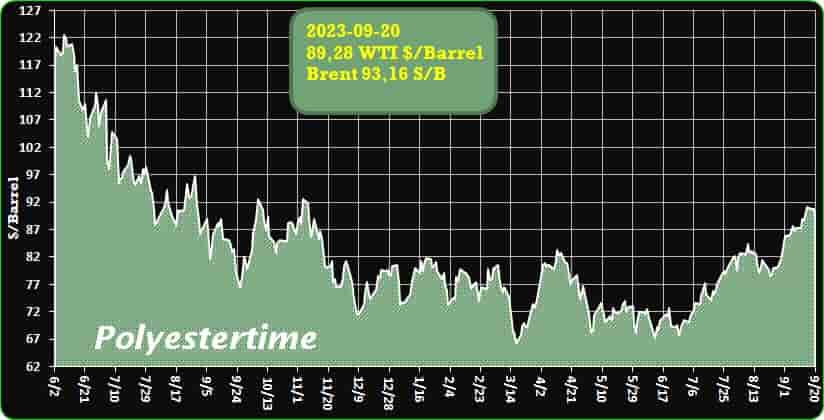
Crude Oil Prices Trend by Polyestertime
Chemelot Itero Technologies and Brightlands Campus have forged a partnership aimed at the construction of a pyrolysis plant
Under a commercial realization agreement, Itero Technologies plans to erect a chemical recycling facility, with an estimated capacity to recycle 27,000 tonnes of plastic waste annually. This innovative plant is scheduled to commence operations in the latter part of 2025 and will employ pyrolysis technology to transform discarded plastic into fresh plastics and products, fostering a circular approach. It marks a significant stride in scaling up Itero’s technology, which currently undergoes research and development using post-consumer plastic waste in a pilot facility located in West London.
Moreover, the establishment of this plant is poised to position Brightlands as a prominent example of scaling pioneering technologies, following the footsteps of ioniqa, Blue Plastics, and ReSolved Technologies. It underscores the importance of substantially expanding recycling technologies, alongside the development of novel ones, to make a positive global impact. PET bottle chip
Brightlands will also play a role in the preparatory civil work, design, and construction of Itero’s demonstration plant. Itero CEO Simon Hansford expressed his enthusiasm for this collaboration, stating, “We welcome taking this next, crucial step together with Brightlands. We see the Brightlands Chemelot Campus circular materials ecosystem, including the Brightlands Circular Space initiative, as a natural fit for the development of our recycling technology. It gives us access to incredible expertise with like-minded professionals and talents working towards shared goals here in the Limburg region.”
Astrid Boeijen, CEO of Brightlands Chemelot Campus, echoed this sentiment, saying, “Itero’s decision to build its demonstration plant at Brightlands Chemelot Campus supports our Brightlands Circular Space initiative as the place to be for circular collaboration and innovation on circularity of plastics. Brightlands Circular Space includes a fully circular demonstrator facility that is being developed at the north side of our campus in 2024-2026. PET bottle chip
Together, we will take advantage of this courageous step as we are both convinced that together we can achieve our goal of a circular world better and faster.”
In other developments, Amcor and Mondelēz International have entered into investment agreements to support Licella in the construction of one of Australia’s initial advanced recycling facilities, with an expected capacity to process 12,000 tonnes of end-of-life plastics annually. Indorama Ventures has also successfully expanded its recycling facility in Brazil, with plans to boost its annual production capacity from 9,000 tonnes to 25,000 tonnes of post-consumer recycled PET. PET bottle chip
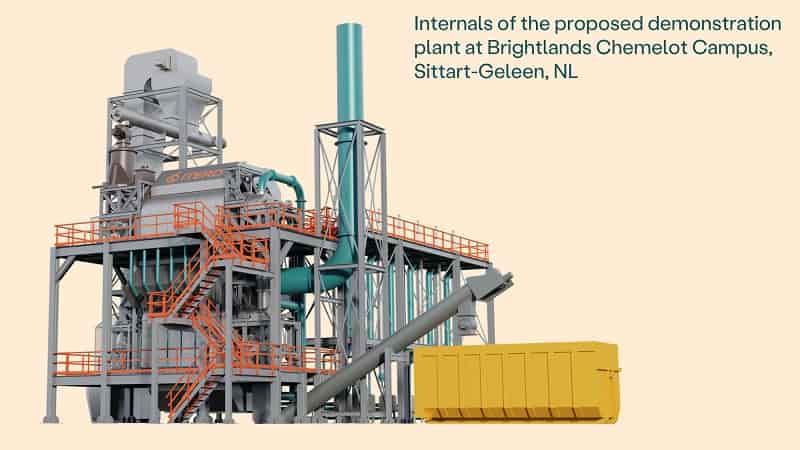
The roadmap of the advanced technology of the Toyota battery
In light of the recent inauguration of its “BEV Factory,” Toyota Motor Corporation (Toyota) has unveiled its ambitious plan for the upcoming generation of Battery Electric Vehicles (BEVs) scheduled for production in 2026.
These cutting-edge batteries, which are not only designed and manufactured using state-of-the-art techniques but also boast an impressive extended range, are set to revolutionize the electric vehicle market. Takero Kato, President of Toyota’s BEV Factory, announced that the new generation of BEVs will make its market debut in 2026, with Toyota aiming to sell 1.7 million out of the 3.5 million BEVs projected for the 2030 model year. The highlight of this development lies in a suite of battery technologies that hold the key to making these BEVs adaptable to a wide range of customer needs and compatible with various fuel sources. PET bottle chip
Kato emphasized the importance of offering diverse battery options, much like the variety of motor choices available. He stated, “Providing battery solutions that cater to different vehicle models and customer preferences is essential.”
These qualities make the solid-state battery an ideal choice, enabling rapid charging and discharging while delivering greater power in a compact form factor.
Toyota’s next-generation solid-state battery brings significant improvements, including:
- A 20% increase in range compared to the Performance battery (approximately 1000 kilometers).
- Rapid charging in 10 minutes or less.
This breakthrough marks a significant step forward in Toyota’s advanced battery technology roadmap.

Nexam Chemical: A Milestone Order for PET Recycling Leading to a Reduction of 1250 Tons of CO2 Emissions
In Spain, a pioneering recycling company has harnessed the power of Nexam’s groundbreaking Reactive Recycling technology to usher in a new era of closed-loop recycling for food trays. This innovative approach not only saves food trays from incineration or landfill, but it also represents a significant step forward in sustainable environmental practices. The collaboration between Nexam Chemical and this Spanish recycler was initiated earlier this year, swiftly progressing from initial discussions to successful trial runs. Now, a groundbreaking full-scale production endeavor is poised to convert a staggering 750 tons of PET (Polyethylene Terephthalate) into upgraded raw materials, specifically designed for the production of new food trays.
The impact of this achievement cannot be overstated, as it effectively rescues these food containers from their previous fate of incineration or other non-recyclable disposal methods. PET bottle chip
In doing so, it contributes to a remarkable reduction of approximately 1250 tons of CO2e emissions – a critical milestone in the fight against climate change. Traditionally, PET recycling has primarily focused on bottles, leaving food trays largely unaddressed within the recycling loop. This venture represents a paradigm shift, demonstrating the potential to recycle a wider range of PET-based products beyond just bottles.
Ronnie Törnqvist, the CEO of Nexam Chemical, expresses his enthusiasm for this new application area, recognizing its immense potential. He states, “This is a new exciting application area, where we see a large potential with more and more companies venturing into recycling of other sources of PET rather than just bottles.” Törnqvist’s words underscore the pivotal role Nexam’s technology plays in enabling companies to explore innovative recycling solutions beyond the conventional scope. PET bottle chip
Henrik Bernquist, the Business Manager for Recycling at Nexam Chemical, acknowledges the significance of this achievement, emphasizing that it marks the first order to a PET recycling company positioned further upstream in the rPET (Recycled Polyethylene Terephthalate) value chain than Nexam’s existing customer base. Despite the relatively modest order size of 0.5 MSEK, the environmental impact and the promising future business opportunities are substantial. This collaboration demonstrates Nexam Chemical’s commitment to advancing sustainable practices and forging partnerships that address the growing global concern of plastic waste and its associated environmental consequences.
In a world where the call for responsible environmental stewardship has never been louder, Nexam Chemical and its Spanish recycling partner have set a powerful example by successfully diverting food trays from incineration and landfill, significantly reducing carbon emissions in the process. PET bottle chip
This achievement serves as a testament to the potential of innovative recycling technologies and their capacity to reshape the future of sustainability. With this milestone order, Nexam Chemical takes a significant step forward in its mission to catalyze positive change within the PET recycling industry, inspiring others to follow suit in the pursuit of a greener, more sustainable future.

SK geocentric to build first comprehensive plastic recycling facility in Ulsan
SK geocentric Co., the chemical unit of South Korea’s SK Group, will build the world’s first comprehensive plastic recycling complex that incorporates three chemical recycling technologies in a single location.
Upon completion, the complex is expected to process and chemically recycle 320,000 tons of plastic waste each year, resulting in a sharp reduction in carbon emissions.
SK geocentric announced a plan on Sunday to build an Ulsan Advanced Recycling Cluster (ARC), a recycling facility for plastic waste, in a site of 215,000 square meters Ulsan, South Gyeongsang Province.
Construction will begin in October with a massive investment of 1.8 trillion won ($1.35 billion).
The site is adjacent to SK Ulsan Complex (CLX) where affiliates of SK innovation Co. are located. PET bottle chip
“The facility will encompass three distinct processes, along with a dedicated power and water supply infrastructure,” said Kim Gi-hyun, a project manager at SK geocentric.
They include pyrolysis, a method that converts contaminated waste plastic into a substance resembling crude oil, PET depolymerization, which dismantles the molecular connections in plastic to eliminate impurities and generate a product resembling the original material, and a so-called supercritical process for extracting high-purity polypropylene (PP).
The current plastic recycling takes place only by grinding plastic substances into pieces. Most of the plastic, even when separated, end up in landfills for incineration.
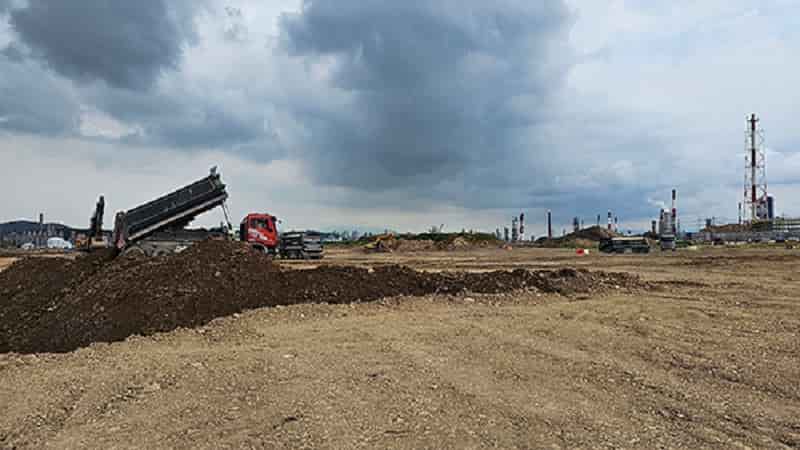
Coca-Cola is making a significant eco-friendly move by teaming up with DS Smith and Coca-Cola HBC Austria to replace plastic handles on 1.5 litre PET soft drink multi-packs with outer packaging made from cardboard
This innovative solution, known as DS Smith Lift Up, is set to make its debut in Austrian supermarkets in September 2023. DS Smith, a sustainability-focused packaging company, proudly asserts that this corrugated handle is entirely recyclable, promising to cut down the usage of approximately 200 tonnes of plastic annually for Coca-Cola HBC Austria.
This eco-conscious packaging transformation will encompass 1.5 litre PET multi-packs of various Coca-Cola beverages, including Coca-Cola, Fanta, Sprite, and Mezzo mix, within Austria. The creation of DS Smith Lift Up adheres to the Circular Design Metrics approach, which has led to a substantial reduction in the carbon footprint of both the packaging itself and the manufacturing process. This particular handle design caters to PET bottles primarily intended for home consumption. PET bottle chip
Furthermore, the versatility of this new design extends to accommodating various bottle sizes and is the result of a collaborative effort with packaging machine manufacturer Krones.
Stefano Rossi, CEO of the Packaging Solutions Division at DS Smith, emphasized the significance of sustainable design, stating, “The DS Smith Lift Up concept was designed using DS Smith’s Circular Design Metrics approach, so it uses the least amount of material possible, reduces impact on the environment, and looks fantastic in stores and supermarkets. Collaboration with our partners Coca-Cola HBC and Krones is key to reducing single-use plastics and delivering innovative change at scale. We hold sustainable design at the heart of what we do as a company, and this is a shining example of the opportunity for innovation in packaging to lead the way to a more sustainable future for manufacturers, retailers, and consumers.”
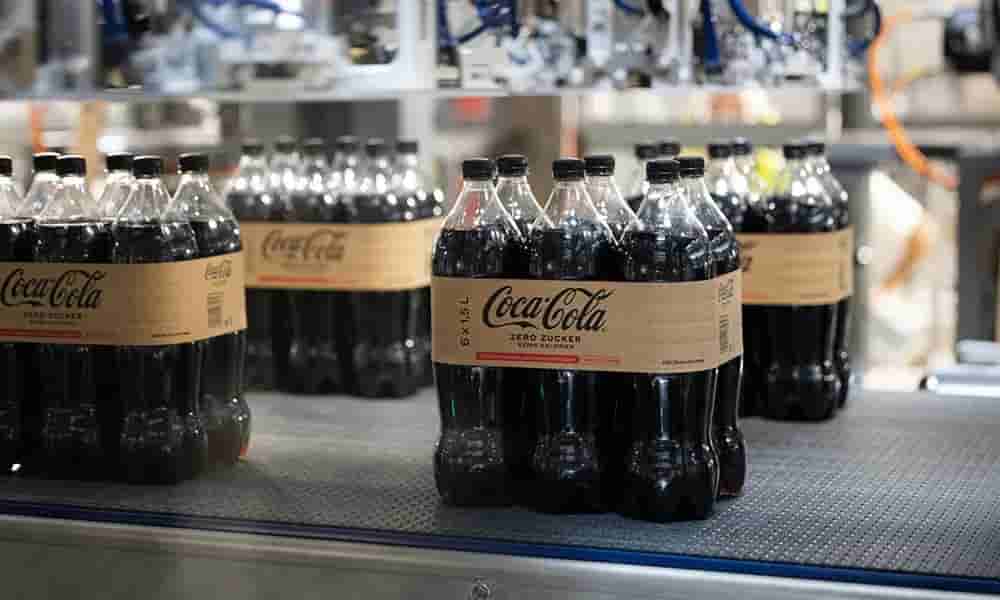
AIMPLAS’ MODALT project aims to accelerate development of ‘electric mobility’
The MODALT project, led by ZELEROS with the participation of AIMPLAS, the Plastics Technology Centre, the CMT Thermal Engines Institute of the Universitat Politècnica de València (UPV), and ZIUR Composite Solutions, aims to tackle this challenge and accelerates the development and validation of high-power electric mobility technologies.
This industrial research, funded by the Valencian Agency of Innovation (AVI), involves the design, prototyping, testing, and validation of a high-performance energy storage module and its integration into modular battery packs for high-power and energy electric mobility applications. PET bottle chip
of Daniel Fons, Program Technical Leader at Zeleros, “Through MODALT we will generate differential knowledge to develop and manufacture more sustainable, lighter, safer, and long-lasting batteries. The storage module we are developing will contribute to unlocking high-performance electrified vehicle applications, as its design meets the power, energy, performance, and operational requirements demanded by these vehicles”.
Guillermo Ulldemolins, a researcher in sustainable and future mobility at AIMPLAS, added: “from a materials perspective, the use of thermoplastic composites enables the structural components of batteries, when they reach the end of their service life, to have a higher recyclability percentage compared to conventional systems, contributing to the circularity of the sector and making it more sustainable and environmentally conscious.”
Additionally, it is claimed the treatment and processing with thermoplastic matrixes allow the incorporation of conductive and fire-resistant particles, thereby achieving important properties such as electromagnetic shielding and fire resistance. Reinforcement with long fibers enables the production of high-stiffness materials without compromising impact resistance. PET bottle chip
PET bottle chip consumption recycling volumes of PET flakes
One customer recently asks a question, which is also the most prominent and deep experience recycled chemical fiber plants have had this year.
According to the data, the consumption of Chinese domestic PET bottle chip was about 7 million tons in 2022, and the production of recycled PSF was about 4.3 million tons and that of recycled PFY was 800,000 tons. Why is there still a shortage of PET flakes?
At first, our thoughts are the same as the customer’s. Even according to the consumption of PET bottle chip, theoretically there should be an oversupply of PET flakes. However, this year the situation is as follows:
- The supply of recycled raw materials is tight generally, both coastal and inland.
- Recycling chemical fiber factories generally have low raw material stocks, especially the recycled PSF factories, with local raw material inventory as low as one week or even two to three days.
- It is already the traditional peak season for the supply of PET flakes with the hot weather and high consumption season, but the market supply has not improved significantly. PET bottle chip
We can only speculate that there are two reasons for this: 1) insufficient recycling, and 2) increased usage in other applications.
Let’s first look at the consumption trends of PET bottle chip over the past five year
It can be seen that over the past five years, the export and sheet + other categories have shown astonishing growth rates of 53% and 209% respectively. Especially, the volume of the sheet + other category has tripled compared to 2018, and although there have been reductions i, the overall base has significantly increased. The growth of soft drinks and edible oil has been relatively mild, with only a 13% increase. PET bottle chip
The recycling rates vary for different categories. Previously, beverages had a high proportion, accounting for about half, and the recycling rate in this area was extremely high. Now, there is a rapid increase in other applications, especially in the demand for sheets and other packaging materials. As a result, the proportion of beverages has dropped by 10%, but there is relatively less recycling of sheets. Therefore, the consumption of PET bottle chip does not equal the recycling volumes of PET flakes.
At the same time, the application of PET flakes is increasing. High-value-added utilization directions such as high-end 3A-grade white flakes, sheet, and bottle-to-bottle production are becoming more and more common, with increasing volumes. High-quality PET flakes are sorted out continually. Consequently, the supply of PET flakes for conventional recycled chemical fiber is becoming increasingly tight, while their influence is diminishing. During the pandemic and the period of low oil prices, recycled chemical fiber factories could still purchase PET fiber chip or PET bottle chip. PET bottle chip
However, in the era of high oil prices, there is no purchasing window for them, and due to higher PET bottle chip and PET fiber chip, quality PET flakes are even used for sheet. Since 2020, the production of recycled chemical fiber has gradually recovered to over one million tons, while the consumption of PET bottle chip for soft drink and edible oil increases by less than 500,000 tons. The shortage of raw materials and difficulty in selling products have become the biggest challenges for recycled chemical fiber factories this year.
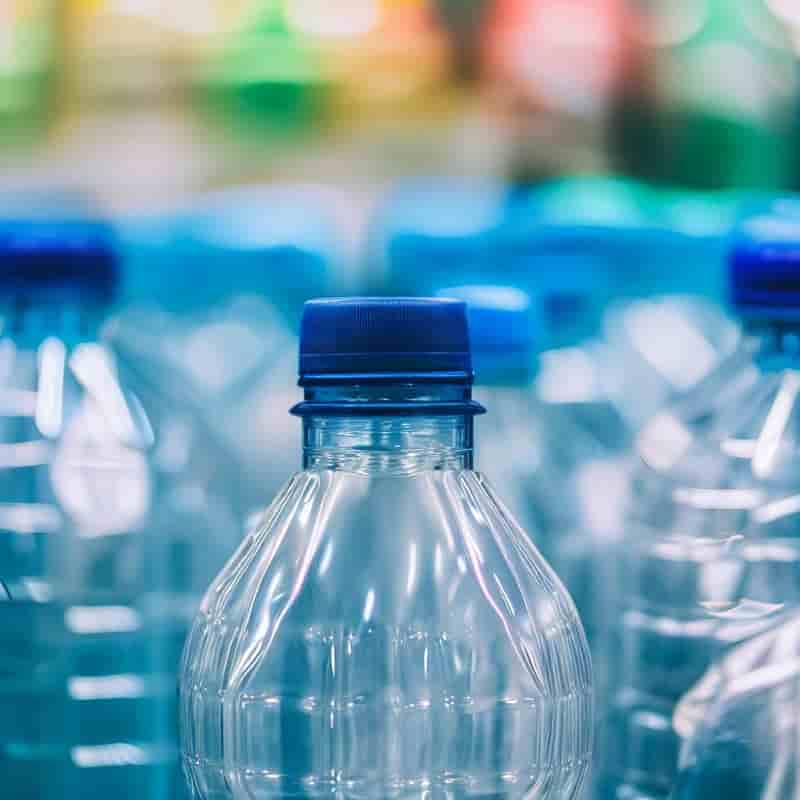
PET bottle chip

